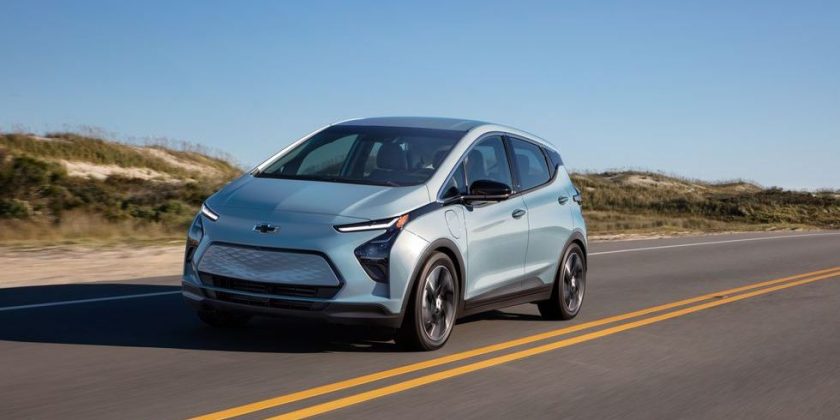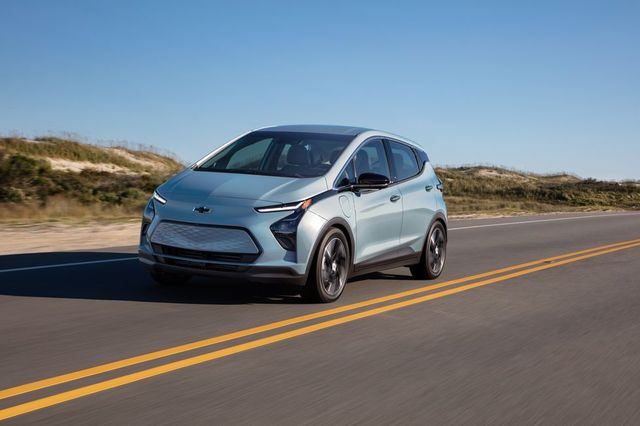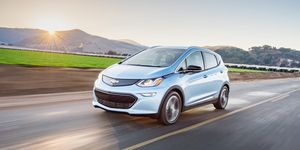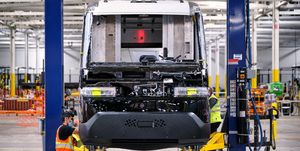General Motors and battery supplier LG have reached a deal under which the cell manufacturer will reimburse the automaker for the vast majority of the costs associated with the Chevrolet Bolt battery recall. LG plans to reimburse the automaker for $1.9 billion out of a total of $2 billion of the projected costs and expenses of the recall effort, just a few weeks after production of battery packs for the Bolt and Bolt EUV crossover has restarted with new quality control procedures.
Earlier this year GM had issued a second recall for an issue linked to several instances of battery fires, expanding the recall to all Bolt models from all model years, including the recently-introduced Bolt EUV, after discovering two rare defects that could be present in the battery packs. The automaker went as far as halting Bolt production, until it was able to work with LG to identify production procedures that could cause the defect to be repeated in new batteries, indicating to owners that it would replace the battery cells at no cost to owners as a part of a recall starting soon. The automaker also issued a series of instructions regarding charging the Bolts, instructing owners to not charge cars overnight.
New battery production by LG resumed in late September, with the automaker stating that the two had implemented new manufacturing processes and quality assurance procedures, targeting a mid-October start of new battery shipments to dealers.
“LG is a valued and respected supplier to GM, and we are pleased to reach this agreement,” said Shilpan Amin, GM vice president, Global Purchasing and Supply Chain. “Our engineering and manufacturing teams continue to collaborate to accelerate production of new battery modules and we expect to begin repairing customer vehicles this month.”
Even with LG’s reimbursement, the automaker may still suffer some fallout as a result the recall at a crucial time for its EV efforts.
Series production of the Ultium-platform GMC Hummer EV is expected to start shortly, with the Cadillac Lyriq being next in 2022. An electric version of the Chevrolet Silverado is also on the way, also slated to use the new and unrelated Ultium battery and powertrain, as the automaker starts to transition some truck buyers to its EV offerings. The quick resolution of the Bolt issue was, therefore, a major priority at a particularly inopportune time, as the unrelated chip shortage has put further strain on supplier and dealer relations.
Source: Read Full Article




